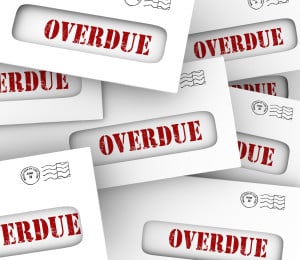As the Consumer Financial Protection Bureau now turns its watchful gaze to debt collection practices, bankers and other first-party creditors would do well to pay attention to the first phase of outlined proposals.
While the rules as currently proposed would apply to third-party debt collection agencies, the bureau’s outline carries with it some implications for those first-party creditors that employ third-party debt collectors, as well as a glimmer of what may be yet to come for creditors.
For now, debt collectors and their trade groups are still trying to wrap their head around the proposed rules, which essentially amount to an effort to enforce the Fair Debt Collection Practices Act of 1977. Debt collectors say they intend to give the bureau a piece of their minds as it seeks input into how to better tweak the rules.
“When I look at the outline of proposals, I see some points that are going to be helpful – both for the consumer and for the industry. I see some that are going to be net neutral. And I see some that are going to cause concern and consternation,” said Harvey Moore, president of the National Creditors Bar Association.
Moore, who also runs a multi-state collection law firm, said that portions of the proposal relating to integrity of information, for instance, should actually benefit the industry. He also was careful to clarify that this was his opinion, and not necessarily the association’s.
“Having information that’s accurate, that tells us what’s happened in the past on an account, tells us if there’s been a dispute, if the dispute’s been resolved, that’s all helpful for us, so we don’t go over things that have happened in the past,” he said.
However, Moore expressed concerns that the CFPB’s outline of proposals would, at its broadest, add to the cost of compliance. As an example, he said that some of the notices and disclosures the bureau is taking under consideration could more than double mailing costs.
“I think that irrespective of what’s happening now versus what’s happened in the past … [regulations] do tend to be more burdensome for the small agencies,” said Jay Gonsalves, the president and owner of Action Collection Agencies in Middleboro. “A lot of us don’t have all the resources that some of the larger ones have. So compliance is challenging for us. We do it, but it’s not without a burden.”
Gonsalves, whose firm works primarily with hospitals, said he employs around 60 people. By the CFPB’s own estimate, the majority of debt collection agencies are also small business, with about 75 percent of them employing 20 or fewer people. (The bureau noted, however, that about two-thirds of the industry’s revenues accrue to firms with 100 or more employees.)
Gonsalves notes that many debt collection agencies are small businesses that make their living working with other small businesses.
“One of my colleagues, he services landscaping companies. That’s his whole business. There are people who stiff these guys a lot. They have to pay their help, they have to pay for the trucks. Where’s the concern for his people? There’s a downstream effect on companies that count on us to work for them,” he said.
Ripple Effects
The bureau has indicated it plans to address first-party creditors separately from this particular outline of proposals, but banks and other businesses that contract will need to furnish those third parties with better information about the portfolios they turn over to them.
“All of this documentation and affirmation has to come from the client, be it the hospital or the bank or Main Street USA business,” Moore said. “If a client sends us accounts and we can’t substantiate the debt, the CFPB says we can’t collect on it. We have exposure if we’re not getting enough information.”
More generally, some worry that the bureau’s proposed rules may hamper legitimate debt collection.
“If adopted, I think the regulations will interfere with legitimate debt collection and could very well hobble the collection of some debts, for example those of lesser value. As compliance costs go up, the willingness to collect goes down,” said David Bizar, a partner with Seyfarth Shaw and chair of the firm’s consumer financial services litigation practice.
Bizar also expressed concerns about how disputes would be handled under the proposed rules – as well as for what even qualifies as a dispute in the first place. And he questioned whether the bureau might be opening the doorway to increased litigation.
“What’s interesting about the new duties the bureau is saying it will impose on debt collectors for how they obtain and use information throughout the collections process is whether the bureau will permit debtors a private right of action to sue for not adequately complying with those duties,” he said. “If it does, and it likely will, I expect to see a lot of litigation.”








